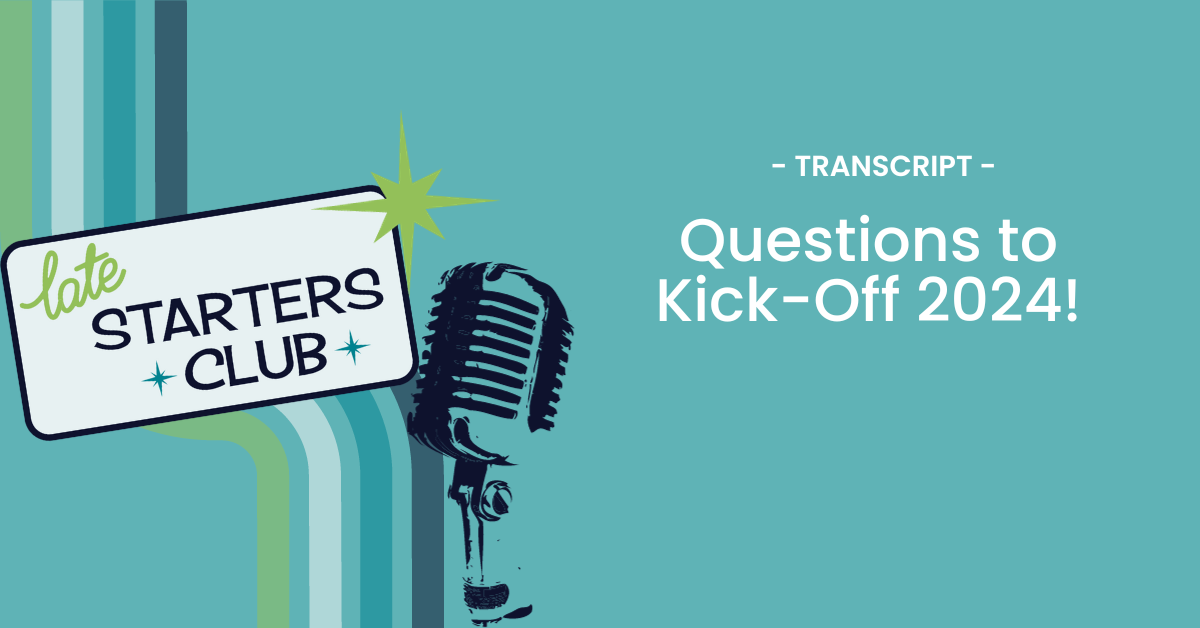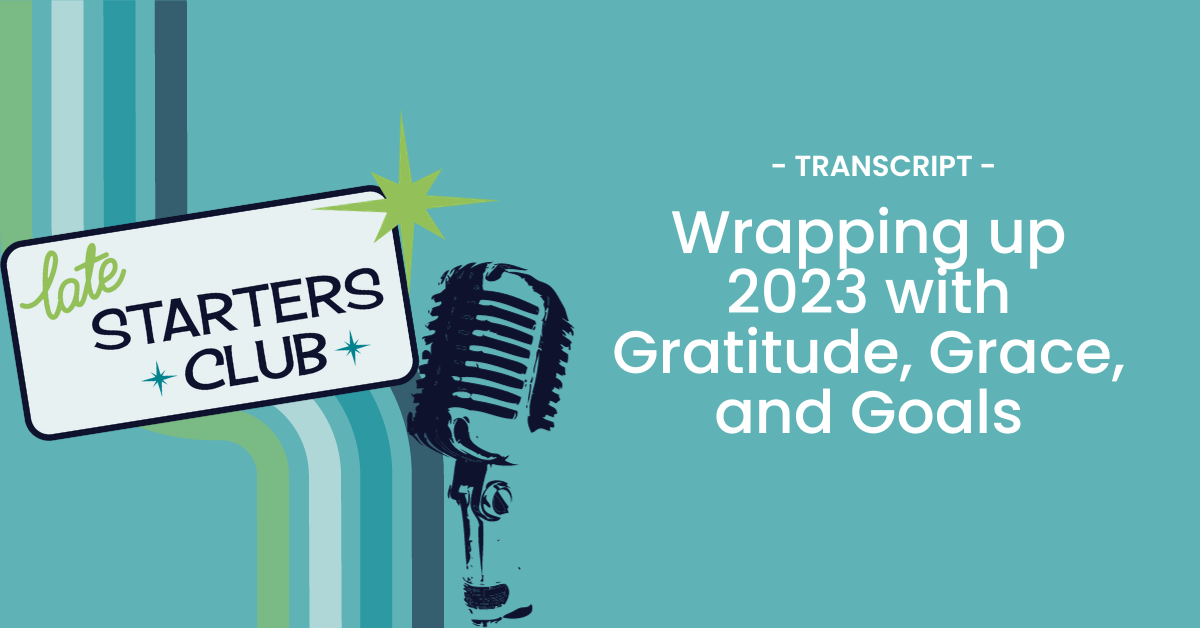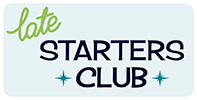Subscribe Apple | Google | Spotify | Stitcher | iHeart Living the Dream Overseas with Christine Gritmon Have you had a lifelong dream to live overseas and haven't made that happen yet? Maybe things have gotten in the way like family, jobs, life. My...
Ep130 Transcript: Spotting Dyslexia – Quick Fix Friday

Andrea Vahl: In episode 128, I talked to Steve Weaver, who found out later in life that he had dyslexia. So today’s Quick Fix Friday is all about spotting dyslexia. And this might be as a late starter, or for someone in your life that you might know, because Steve was very interested in helping people learn about their dyslexia earlier, when their children so that they can have more success later in life.
Hello, dreamers. Welcome to the late starters club, giving you the inspiration, mindset, and tools you need to start something midlife and beyond remember, it’s never too late to follow your dreams.
First, a word from our sponsor, me. Are you feeling stuck in your business and aren’t sure how to grow? Or maybe you’re starting something new and just really don’t know what strategy is going to work best for you. Then you might need my one on one coaching and consulting. I’ve personally helped businesses grow to the six figure mark.
And seven figure mark, whether it’s really diving into your ads and seeing what’s wrong, giving you hands on specific advice, or it’s just taking a look at your overall strategy and giving you some recommendations for moving ahead. Just go to andreaval. com and go to the consulting and coaching tab for more information and packages that fit your needs.
And now back to our regularly scheduled program.
So I’m no dyslexic expert, but Steve provided a whole bunch of books, articles, YouTube videos, and resources to help people learn more about dyslexia. This was a list that he was compiling for his family to help them understand his condition.
And I think it is so beneficial that we all know a little bit more about this condition because a lot of people may have it. Some studies have shown between five and 10% of the population. There are also interesting studies that show between 20 and 40 percent of people in prison have dyslexia or some sort of similar learning disability.
And that is a really big clue to us that if these people may have had better help as a child, they might have had better opportunities and been able to stay out of the prison system.
So I wanted to start with one of Steve’s articles that I thought was really interesting because this is something I didn’t know. And it was talking about clues to dyslexia in early childhood. Of course we think of the whole thing about not being able to read. But there are also clues even earlier.
So in the preschool years, a child might have trouble learning common nursery rhymes, such as Jack and Jill or Humpty Dumpty. There might be some difficulty learning the letters of the alphabet and possibly unable to recognize letters in their own name. They might not recognize naming patterns like cat, bat, rat, and they might mispronounce familiar words or do a little more baby talk than normal for a toddler.
Dyslexia often runs in families as well. So if you have a family history around it, you might get that checked out. If you’re suspecting that in your child or grandchild. And of course the early grade school years come the reading errors and difficulty reading. And there also could be some other issues that I wasn’t aware of, like an understanding that the letters have a particular sound or can’t even sound words out. Obviously if someone is complaining about reading, that’s a big clue.
But as Steve found, it’s harder to spot when you’re an adult because you’ve had workarounds your whole life. You don’t recognize that the way you do things might be different. So there are testing facilities, but they can be very expensive. So one of Steve’s resources was actually going to a college or university.
And being a test subject for them. So he mentioned local schools here in the Denver area, but you might check out your university, if you’re in a different area, find out if they’ve got PhD students or students who are learning about language and need subjects to help test dyslexia.
If you or someone, has dyslexia, definitely get tested. Get some assistance, but dive into some of Steve’s resources that he’s provided and see if it might be something that you’re suspecting in yourself or someone close to you. And then go about the process of getting them tested because the more we know about conditions we have or things that are affecting us even later in life means that we can continue to be successful in a bigger way and maybe just learn a little bit more about how we operate.
Hope that was helpful and make sure you grab the free guide top tools for late starters on the website at latestartersclub.com and let’s turn dreaming into doing.
Join the conversation.
Let us know what you think about this episode.
Never miss an episode.
Subscribe to the podcast
You may also enjoy…

Ep170 Transcript: Finding New Motivation with Barry Karch
Finding New Motivation with Barry Karch Andrea Vahl: It's never too late to restart something you loved. My guest today, Barry Karch, started training for a marathon after a 20 year hiatus. And we'll also dive into how he climbed the equivalent of Mount Everest...

Ep169 Transcript: Questions to Kick Start 2024
Andrea Vahl: Oh, happy new year. Yeehaw. 2024. All right. I don't know about you, but I love planning out my year and setting goals and really reflecting on how my past year went and being super intentional about what I want the next year to look like. In today's...

Ep168 Transcript: Wrapping up 2023 with Gratitude, Grace, and Goals
Hello, late starters. It's your host, Andrea Vahl And today is Christmas day. And if you do celebrate that Merry Christmas, if you celebrate some other holiday, I wish you all the best and all the joy for that. I just wanted to make a different episode. So today we're...


0 Comments